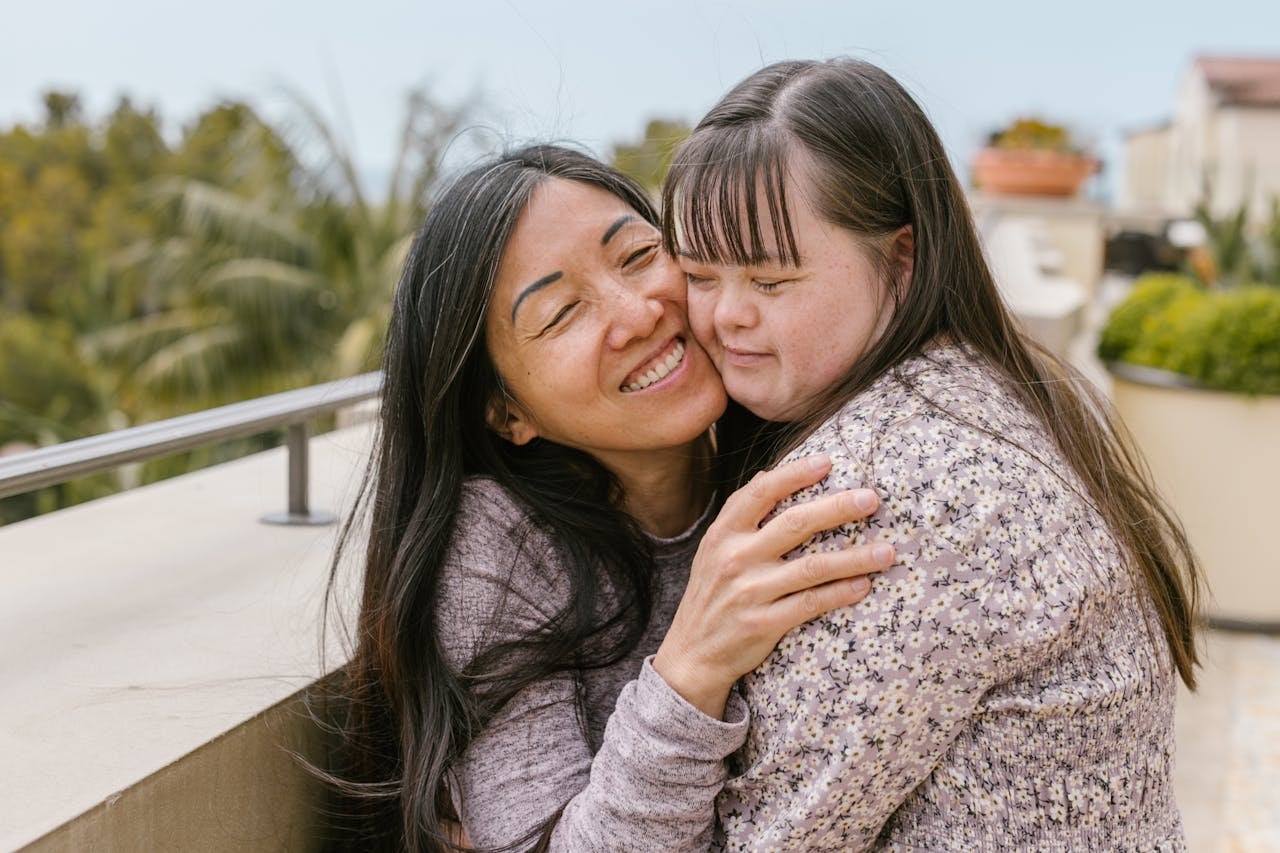
Understanding the Importance of Parent Training Under the NDIS
Are you in search of Parent Training NDIS?
When it comes to supporting children with disability, few things are more powerful than parental involvement. Through the National Disability Insurance Scheme (NDIS), families now have access to parent training programs designed to build confidence, develop new skills, enhance the caregiving role, and provide additional resources for participants .
At Re.Connect Support Services, we believe in the power of family. That’s why our team is dedicated to helping parents, carers, and guardians achieve better outcomes for their children through tailored, compassionate, and evidence-based NDIS services, along with ongoing guidance.
What Is Parent Training in the NDIS?

A Capacity-Building Support That Strengthens Families
Parent training NDIS is a funded support under the National Disability Insurance Scheme (NDIS) that focuses on empowering parents, guardians, and carers with the knowledge, tools, and strategies needed to effectively support a child living with a disability, including all participants .
Rather than being an optional add-on, parent or carer training is considered a critical part of a child’s journey towards development, improved behaviour, stronger communication, and greater independence. The training typically falls under the Capacity Building – Improved Daily Living support category, making it eligible for NDIS funding.
This support is more than just a workshop or one-off meeting. It’s a structured, intentional approach to helping families build the resilience, confidence, and understanding needed to create a stable, nurturing environment and improve overall quality of life—for both the child and the parent.
It’s Not Just About the Child—It’s About the Whole Family and Parental Involvement
When parents are equipped with the right skills and insights, they’re better able to provide emotional support :
- Respond calmly to behavioural challenges
- Manage daily tasks and routines more efficiently
- Establish consistent approaches between home, school, and therapy settings
- Advocate for their child during NDIS planning meetings, education sessions, and medical appointments
- Build a stronger bond with their child through tailored communication techniques
The NDIS recognises that parental involvement is one of the most influential factors in a child’s ability to achieve positive outcomes. That’s why registered NDIS providers like Re.Connect offer tailored training programs based on your family’s individual needs, goals, and cultural context.
What Does This Carer Training Involve?
Parent training services can take many forms depending on the specific needs of the child and the preferences of the family, and can be covered by ndis funding . This may include:
- Behavioural coaching from psychologists or behaviour support practitioners
- Communication strategies guided by speech pathologists
- Emotional regulation and coping techniques provided by counsellors or occupational therapists
- Workshops and peer support groups to foster community participation and shared learning
These sessions may be delivered in various formats—such as in-home visits, online coaching, or centre-based programs—ensuring they are as accessible and flexible as possible, providing valuable resources for all families .
Why Is Parent Training So Crucial?

Empowering Parents Means Empowering Children
It’s simple: when you empower parents, you strengthen the whole family. By building a nurturing environment, children are more likely to achieve their goals, adapt to their surroundings, and develop meaningful connections with their community.
Here are just a few ways parent training can benefit your family, increasing your knowledge of effective strategies :
- Improve self care and behaviour routines at home
- Help parents manage tasks with less stress
- Encourage greater community participation
- Strengthen parent-child communication
- Develop resilience and adaptability
What Does Parent Training Look Like?

Flexible Programs to Fit Your Life
Depending on your child’s NDIS plan, parent training can come in many formats:
- Workshops run by allied health professionals
- 1:1 coaching sessions in your home or online
- Peer-based programs to connect with other carers
- Group sessions on self care, development, and positive behaviour
Whether you’re addressing specific needs like behaviour management or simply looking to build confidence, there’s a range of programs that can be designed to suit your family and support your carers .
What Topics Are Covered in NDIS Parent Training?

Practical Skills That Make a Real-World Difference
NDIS parent training isn’t just theoretical—it’s deeply practical, focused on giving parents, carers, and families the tools they need to respond, manage, and support their child’s daily life with confidence, enhancing their ability to cop .
Whether you’re navigating meltdowns at the shops, helping with self care routines, or supporting your child through school transitions, the training helps you learn new skills and build effective, long-lasting strategies that reflect your child’s individual needs.
Here’s a breakdown of the key focus areas commonly covered in parent training NDIS programs:
1. Behaviour Support and Emotional Regulation
- Understanding the why behind your child’s behaviour
- Strategies to manage anxiety, aggression, or sensory sensitivities
- How to apply positive behaviour support (PBS) methods at home
- Setting up routines and boundaries that reduce conflict
- Preventing escalation by spotting early signs of distress
This area often involves registered NDIS providers working closely with families to build consistent, compassionate approaches to behaviour management.
2. Communication Skills and Interaction Techniques
- Enhancing parent-child communication using age-appropriate language
- Using visual aids, signs, or AAC (Augmentative and Alternative Communication) devices
- Encouraging self-expression and building social confidence
- Listening and responding with empathy and purpose
Improved communication is often cited as one of the biggest benefits of parent training, particularly for children who are non-verbal or experience language delays.
3. Daily Routines, Self Care, and Independence
- Teaching children to complete self care tasks like dressing, brushing teeth, or toileting
- Building routines for bedtime, mornings, and mealtimes
- Helping children develop independence in age-appropriate ways
- Using checklists, timers, or visual schedules for transitions
This supports not just the child’s development, but also helps reduce the emotional load on parents by making daily tasks more predictable and manageable.
4. Supporting Your Child’s Learning at School and Home
- Strategies to support homework, reading, or learning new concepts
- Collaborating with educators to ensure consistency
- Advocating for your child’s needs in school settings
- Understanding sensory needs and how they affect learning
This topic ensures that parental involvement continues beyond the home, contributing to improved outcomes in education and community participation for children with a disability .
5. Strengthening Family Dynamics and Relationships
- Balancing attention between siblings
- Improving the caregiving role through self-awareness and reflection
- Building resilience as a family unit
- Managing stress and avoiding caregiver burnout
- Conflict resolution and healthy emotional expression
This part of the training, often referred to as carer training, is often what families find most surprising—because it reminds them they’re not alone, and that support is available for everyone, not just the NDIS participant.
6. Advocacy and Navigating the NDIS
- Understanding your NDIS plan, goals, and supports
- Preparing for planning meetings or plan reviews
- Identifying relevant line items and how to access them
- Working with NDIS planners, support coordinators, and allied health professionals
- Accessing community services, support groups, and respite options
This ensures parents become confident advocates—able to ask for what they need, understand what they’re entitled to, and navigate the NDIS system with clarity.
Is Parent Training NDIS Funded?
Yes—And It’s Worth Requesting
If your child’s NDIS plan includes Improved Daily Living, chances are parent training is already available to you, and can be part of the funding . And if not, you can request it during your planning meeting with your NDIS planner or support coordinator.
This type of carer training is typically included under the line item for “Parent/Carer Training” within the plan. It is particularly beneficial for families dealing with complex disability needs or seeking support for behaviour and communication challenges.
Who Can Access Parent Training?

Designed for Families, Backed by the NDIS
Any parent, guardian, or primary carer of an NDIS participant can access parent training—especially when the goal is to support the child’s development, community participation, or social functioning.
This includes:
- Parents of children on the autism spectrum
- Families managing physical or developmental disabilities
- Carers supporting school-aged children with behavioural issues
And yes, NDIS funding can cover it when the support meets the “reasonable and necessary” criteria set by the NDIS.
Why Choose Re.Connect as Your Registered NDIS Provider?
Personalised, Practical, and Backed by Experts
As a registered NDIS provider, Re.Connect offers more than just information—we offer tailored training programs delivered by professionals who understand the importance of family-first strategies.
We focus on:
- Realistic, achievable goals
- One-on-one sessions that respond to your family’s rhythm
- Accessible formats (in-person, virtual, and blended)
- Cultural sensitivity and community awareness
- Collaboration with your existing NDIS team or planner
How to Add Parent Training NDIS Plan
Advocate With Confidence
If parent training isn’t already included in your plan, we can help you advocate for it and determine the best course of action . Here’s how:
- Review your current NDIS plan
- Identify challenges or goals where training would help
- Gather reports or evidence from allied health professionals
- Prepare for your planning meeting
- Request parent/carer training under Improved Daily Living or Capacity Building
Need help? Our support coordination services can guide you through the process, from identifying the line item to contacting your NDIS planner.
The Outcomes Speak for Themselves
Confidence. Clarity. Connection.
Research shows that parents who receive consistent training are more likely to feel confident in their caregiving role, respond to behaviours with calm, and foster stronger connections within the family unit, enhancing their overall ability .
Even better? Children benefit too—often showing marked improvement in social engagement, routine compliance, and classroom behaviour.
At Re.Connect, we’ve seen it firsthand. Families come to us unsure and leave with tools that help them create structure, boost independence, and most importantly—feel connected again.
Ready to Begin?
Let’s Work Together to Build a Brighter Future
If you’re ready to explore parent training through your NDIS plan, reach out to us at Re.Connect. We’ll assess your family’s specific needs, work alongside your support team, and help you develop a program that strengthens your family unit—one skill at a time.
Together, we’ll turn overwhelm into action, and worry into well-being, improving the quality of life .
📞 Contact us now to speak with a friendly NDIS support expert. Your next step starts here.


